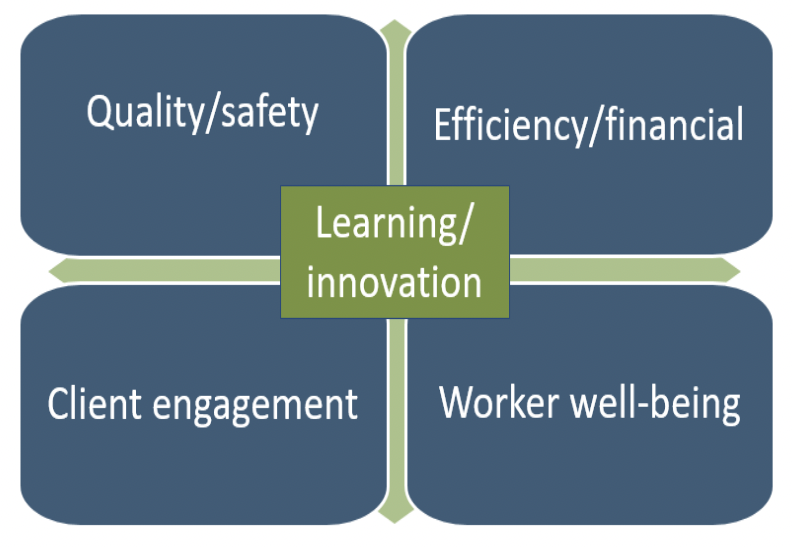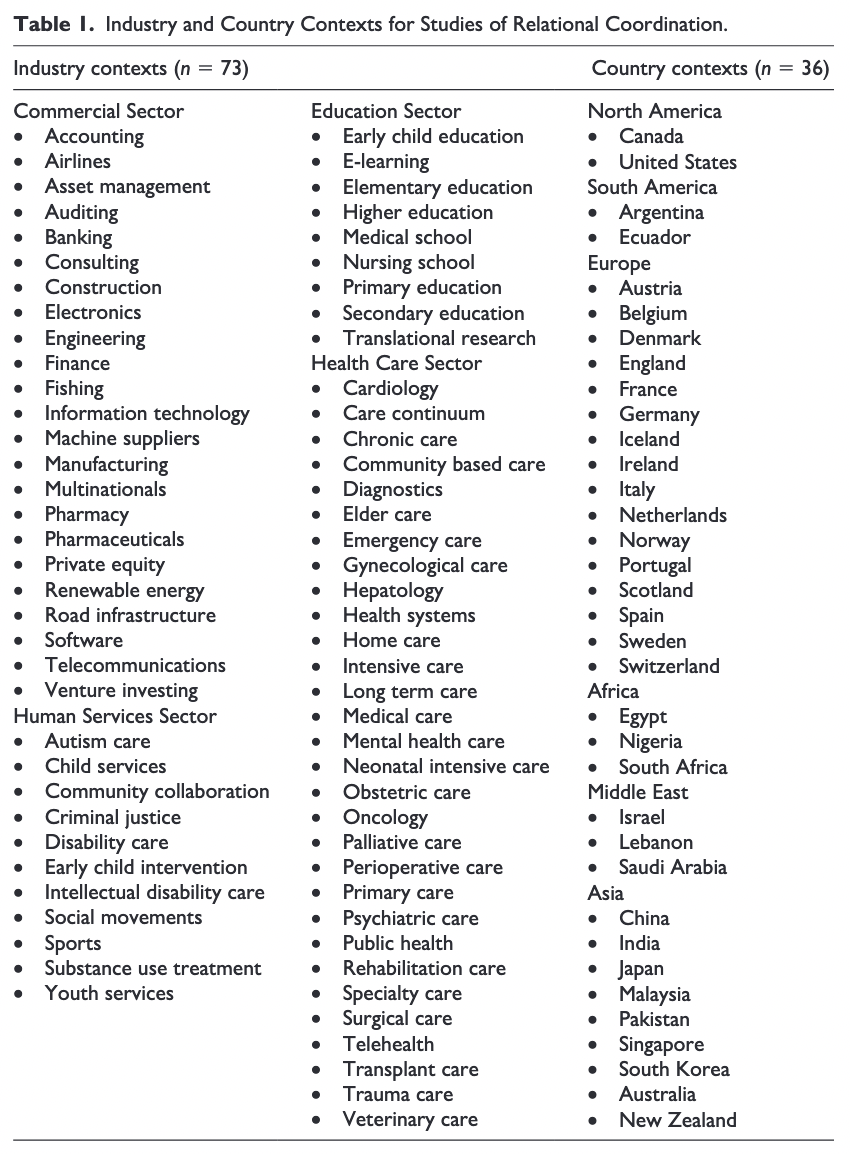Relational coordination is evidence-based
Research findings suggest that the strength of relational coordination ties among participants in a work process predicts outcomes that are critically and strategically important in organizations, meeting the needs of multiple stakeholders. These outcomes include quality and safety outcomes, efficiency outcomes, client engagement, worker well-being - and an increased ability to learn and innovate over time. Research findings also identify the structures that support relational coordination, providing guidance on how to build and sustain it in real organizations - see Revisiting Relational Coordination - A Systematic Review.

RC has been used in many industry sectors, and in many countries around the world...

RC is measurable
The Relational Coordination Survey is a fully validated, network measurement tool that includes seven questions based on the theory of relational coordination, is available in a variety of languages, and can be customized to any work process from small co-located teams to large complex multi-level systems.
RC works at multiple levels in practice
Members of this community are working to scale up RC change processes from small co-located teams to large complex multi-level systems. Stakeholders typically come to see their work differently and they begin to have more productive conversations. Check out the RCC Innovation Lab on Building Relational Ecosystems for Innovation!
Meta level |
Institutional coordination |
Macro level |
Cross-organizational coordination |
Meso level |
Within-organization coordination |
Micro level |
Inter and intra-personal coordination |
